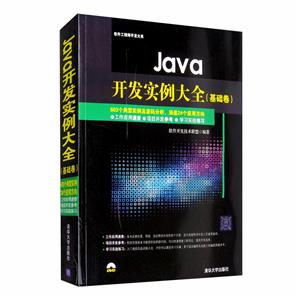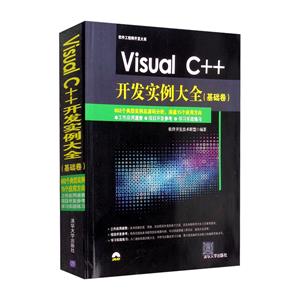
作者:辛立志
页数:1000
出版社:中国科学技术大学出版社
出版日期:2016
ISBN:9787312039614
电子书格式:pdf/epub/txt
内容简介
本书论述了如何运用常见的设计原理来简化软件开发,以创建CRM(客户关系管理)软件系统为范例,详细阐述了metadata-driven(元数据驱动)过程的设计理念和步骤。
目录
PrefaceAcknowledgements1 Introduction 1.1 History of Computing 1.1.1 Information Theory 1.1.2 Turing Machine 1.1.3 Von Neumann Machine 1.2 Software Development 1.2.1 Complexity 1.2.2 Is Software Development Science or Art, Engineering or Craft
1.2.3 The Search for Silver Bullet 1.2.4 The Art of War 1.2.5 Build or Buy
1.2.6 The Art of Software Development 1.3 Case Study: SimpleCRM Application2 Principles 2.1 KISS Principle 2.1.1 Partition 2.1.2 Abstraction 2.1.3 Generalization 2.2 Knowledge Factory 2.2.1 Data, Information and Knowledge 2.2.2 Knowledge Factory 2.3 Prototype 2.3.1 User Interface Prototyping 2.3.2 Application Prototyping 2.3.3 Data Prototyping 2.4 Technology, Process and People 2.4.1 Technology 2.4.2 Process 2.4.3 People 2.5 Summary3 Requirements 3.1 Requirements Elicitation 3.1.1 Joint Application Development (JAD) 3.1.2 Other Elicitation Techniques 3.2 Requirements Definition 3.2.1 Use Case 3.2.2 Business Rule 3.2.3 User’s Role and Permission 3.3 Requirements Validation4 Analyses 4.1 Functional Specification 4.2 Non-Functional Specification 4.3 Security Access Control 4.3.1 Authentication 4.3.2 Authorization5 Design 5.1 High-Level Design (Architectural) 5.2 Design Process 5.3 Low-Level Design (Detailed) 5.3.1 UI Design 5.3.2 Data Access Design 5.3.3 Domain Design6 Construction 6.1 User Interface 6.2 Data Access 6.2.1 Object-Relational Mapping 6.2.2 Distributed Transaction Service 6.3 Domain7 Conclusion 7.1 Books 7.2 Pet Projects 7.3 Future 7.3.1 Intentional Software 7.3.2 Transparent Computing 7.3.3 Can the end users write software themselves
GlossaryReferencesIndex
1.2.3 The Search for Silver Bullet 1.2.4 The Art of War 1.2.5 Build or Buy
1.2.6 The Art of Software Development 1.3 Case Study: SimpleCRM Application2 Principles 2.1 KISS Principle 2.1.1 Partition 2.1.2 Abstraction 2.1.3 Generalization 2.2 Knowledge Factory 2.2.1 Data, Information and Knowledge 2.2.2 Knowledge Factory 2.3 Prototype 2.3.1 User Interface Prototyping 2.3.2 Application Prototyping 2.3.3 Data Prototyping 2.4 Technology, Process and People 2.4.1 Technology 2.4.2 Process 2.4.3 People 2.5 Summary3 Requirements 3.1 Requirements Elicitation 3.1.1 Joint Application Development (JAD) 3.1.2 Other Elicitation Techniques 3.2 Requirements Definition 3.2.1 Use Case 3.2.2 Business Rule 3.2.3 User’s Role and Permission 3.3 Requirements Validation4 Analyses 4.1 Functional Specification 4.2 Non-Functional Specification 4.3 Security Access Control 4.3.1 Authentication 4.3.2 Authorization5 Design 5.1 High-Level Design (Architectural) 5.2 Design Process 5.3 Low-Level Design (Detailed) 5.3.1 UI Design 5.3.2 Data Access Design 5.3.3 Domain Design6 Construction 6.1 User Interface 6.2 Data Access 6.2.1 Object-Relational Mapping 6.2.2 Distributed Transaction Service 6.3 Domain7 Conclusion 7.1 Books 7.2 Pet Projects 7.3 Future 7.3.1 Intentional Software 7.3.2 Transparent Computing 7.3.3 Can the end users write software themselves
GlossaryReferencesIndex















